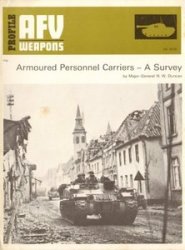After Afghanistan's "April revolution” on April 27, 1978, brought a pro-Soviet government to power, the Democratic Republic of Afghanistan (DRA) turned to its Soviet patrons for assistance in their battle against Muslim insurgents and warlords. The government of Prime Minister Hafizullah Amin and President Nur Mohammad Taraki sought and received Soviet economic assistance and military equipment and advisors but failed to receive ground troops despite repeated requests. The Politburo did not want to fight Afghanistan's battles while its clients sat safe in their fortified offices in Kabul.
On March 18, 1979, the Politburo created a commission comprised of Andrei Gromyko, the foreign minister; Yury Andropov, the head of the KGB; Dmitry Ustinov, minister of defense; and Politburo member Boris Ponomarev, to assess the Afghanistan situation. Their charge came after two panicked requests from President Taraki, on March 18 and 20, for ground troops to put down a mutiny in the town of Herat. Two Soviet advisors had already been killed.
In their conversation with Taraki, Politburo members, led by head of state Kosygin, made it clear that the Afghan government, like the North Vietnamese, should solve their own internal problems:
The introduction of our troops would arouse the international community, which could lead to a series of negative consequences and would give enemies an excuse to introduce hostile armed formations on Afghan territory.
Instead, the Politburo representatives recommended the Afghans engage in diplomacy "to remove the excuse of Iran, Pakistan and India to meddle in your affairs.” Taraki's more modest request—attack helicopters manned by Soviet crews and crews to operate Soviet tanks—was also met with a cool reaction: "The question of sending our people to man your tanks and shoot at your people is a very controversial political issue.”
Any remaining hopes for Soviet troops were dashed later in the day by party general secretary Leonid Brezhnev:
We have examined this matter with extreme care and I can tell you directly: This is not going to be. It would only play into the hands of enemies—both yours and ours. You have already had a more detailed discussion with our comrades, and we hope that you accept with understanding our considerations. Of course, to declare this publicly, either by you or by us, that we are not going to do this [commit troops], for understandable reasons, does not make sense.
After these conversations, Afghan forces quelled the Herat mutiny without Soviet ground troops, and the Politburo commission went about preparing its position paper on Afghanistan. Their report was discussed and its recommendations accepted three weeks later at the April 12, 1979, meeting of the Politburo under the agenda item: "About our future course in Afghanistan.”
The eleven-page report came out unequivocally against the use of ground troops. It provided a sober assessment, garbed in Marxist language of class struggle and counter-revolutionary forces. It concluded that the Afghan socialist revolution was in difficulty. It was being applied in a primitive country without a strong working class and was being challenged by religious fanatics, foreign interventionists, tribal warlords, and bourgeois elements. To make matters worse, the Afghan party, divided on tribal lines between the "Khalq” and "Parcham” factions, was in the midst of a power struggle. As the report complained: "The most visible leaders of the Parcham group [including the later president Babrak Karmal] have been either physically eliminated, removed from party work, or driven out of army and state administration; others have fled abroad as political emigrants.”
Under these circumstances, Soviet troops should not be committed:
In view of the primarily internal character of anti-government actions in Afghanistan, the use of our troops in suppressing them would, on the one hand, seriously harm our international integrity and would turn back the process of detente. It would also reveal the weak position of the Taraki government and further encourage counter-revolutionaries inside and outside Afghanistan to step up their anti-government activities. . . . Our decision not to honor the request of the leaders of the Democratic Republic of Afghanistan to send Soviet troops is completely correct. It is necessary to stick to this line and in the case of new anti-government actions to rule out the possibility of the use of troops.
Certain types of assistance were, however, to be encouraged, such as political and military training, shipments of grain and military equipments, and advice on "strengthening and raising the effectiveness of organs of state security.”
Eight months later, the same Politburo that categorically refused to commit ground troops ordered the invasion of Afghanistan from bases in Soviet Turkistan. Eventually more than a half a million troops were to serve in the Afghanistan venture. The mission of these troops changed along the way from installing and protecting a new government, to counter-insurgency operations, and then to air and ground operations.
This story is about what happened to change the Soviet leadership's mind. It tells the tale of how an increasingly paranoid and suspicious gerontocracy accepted the KGB's theory that imperialist forces, headed by the United States, intended to threaten its southernmost republics from Afghanistan as part of a vast conspiracy to create a second Ottoman Empire. The final decision was made at the summer home of the ailing Leonid Brezhnev by a handful of Politburo members that did not include those most likely to raise questions about the forthcoming adventure.




 World History
World History









